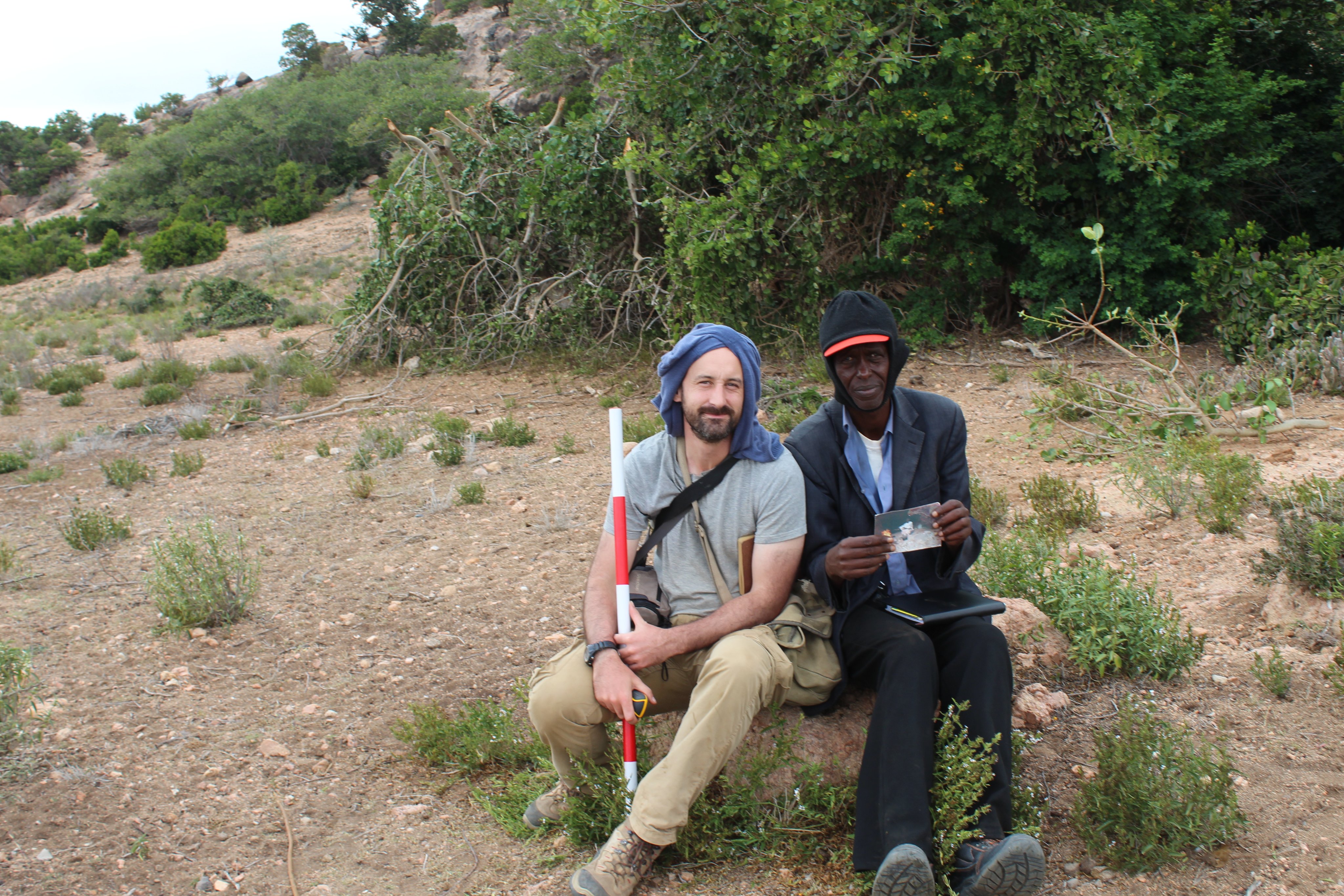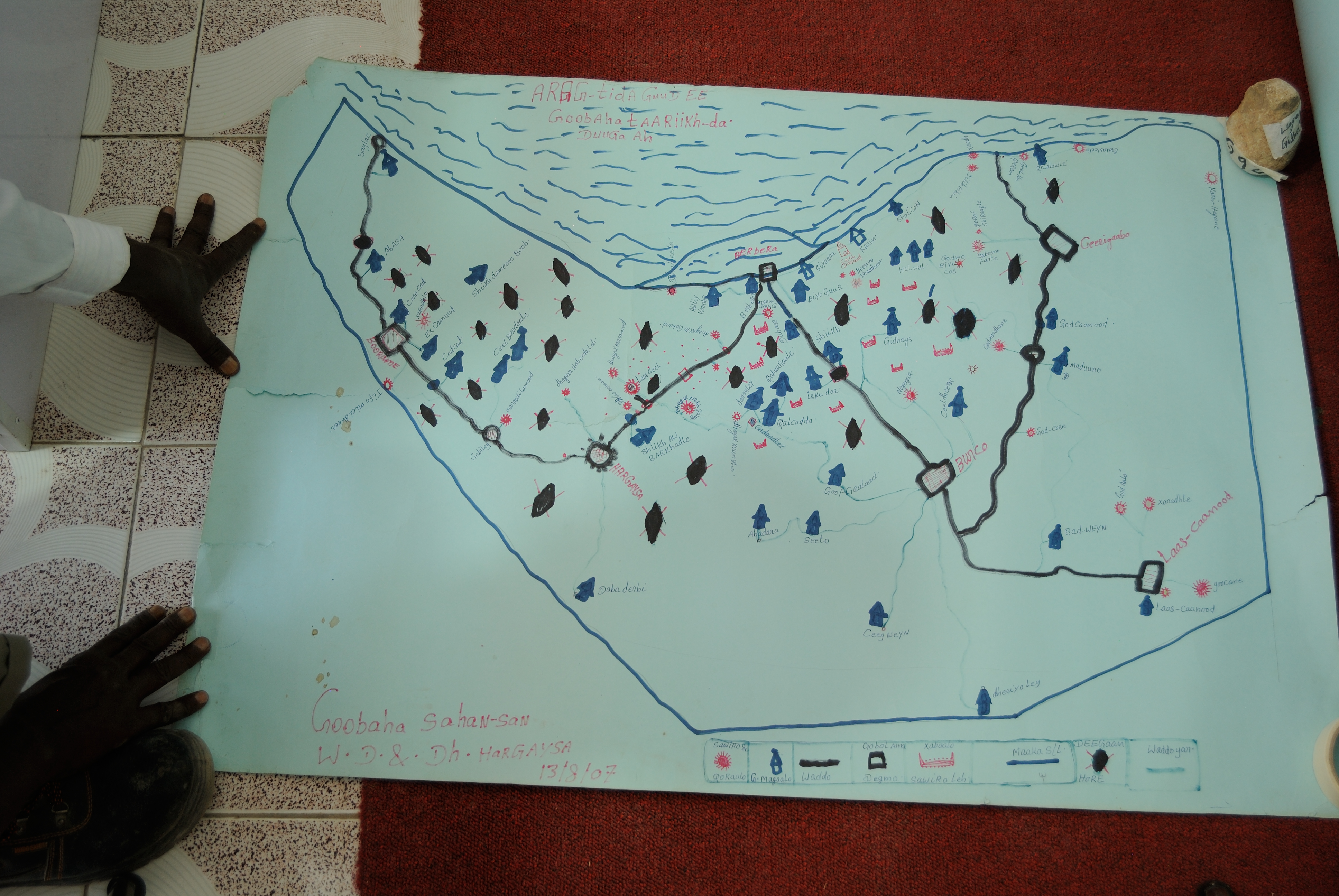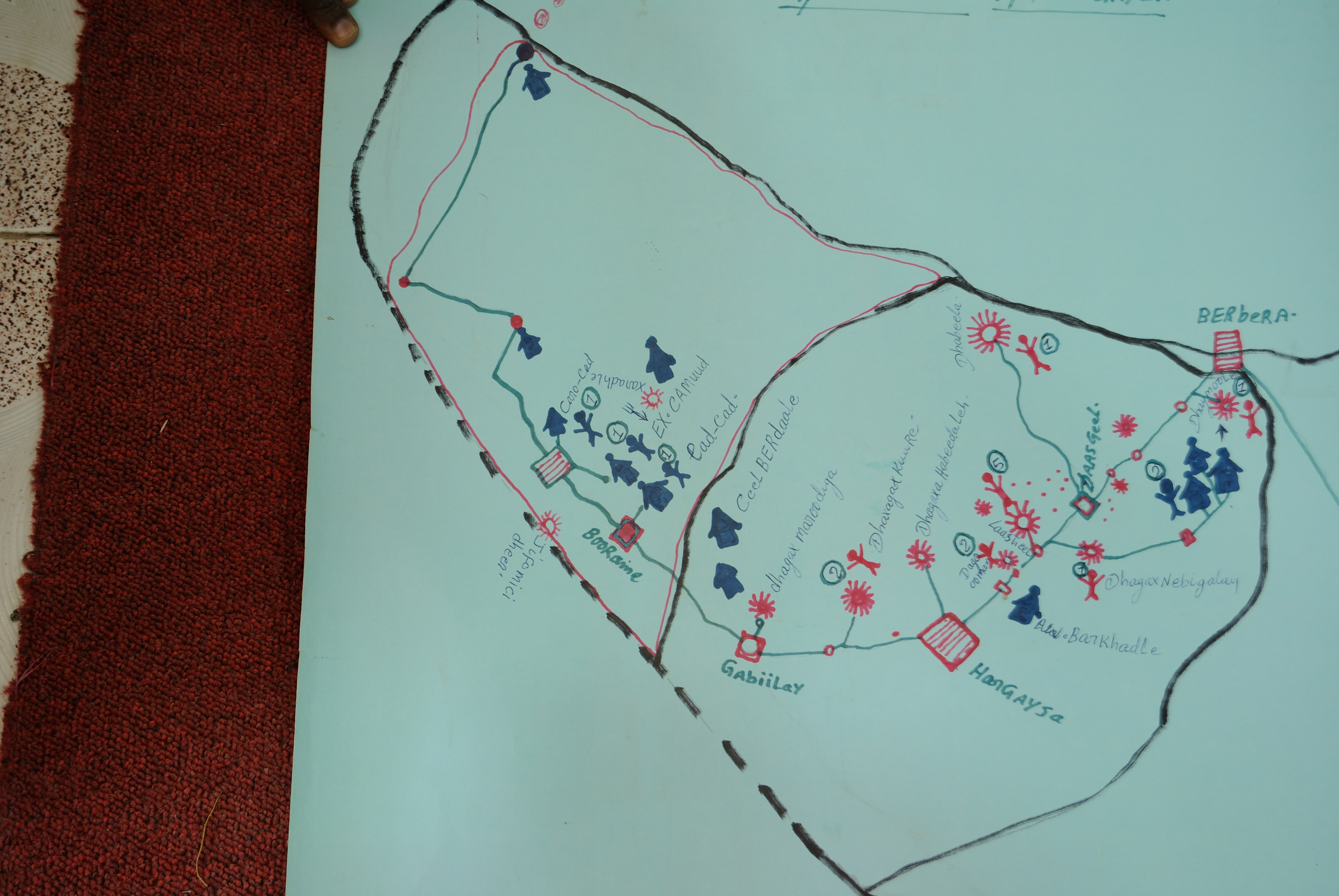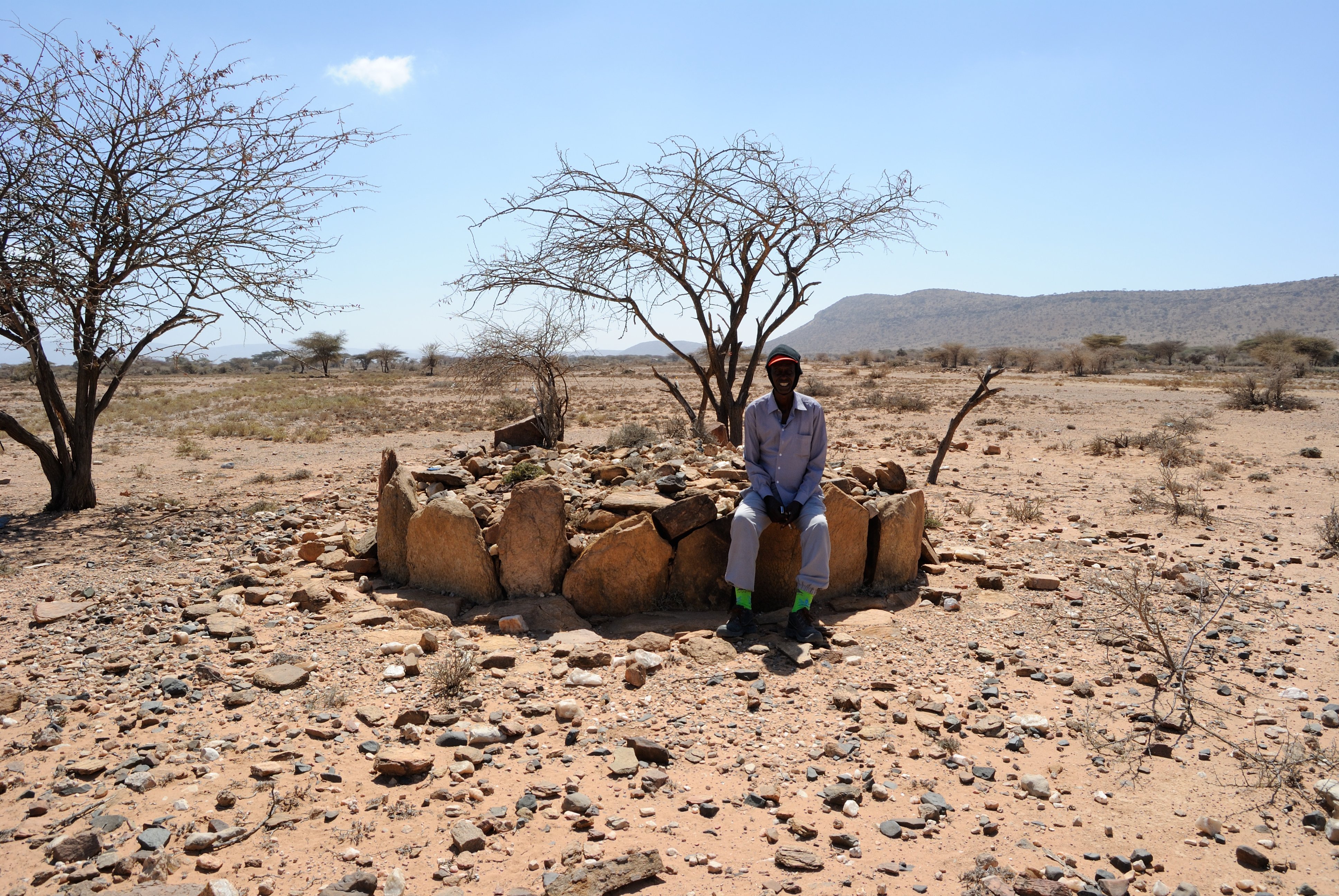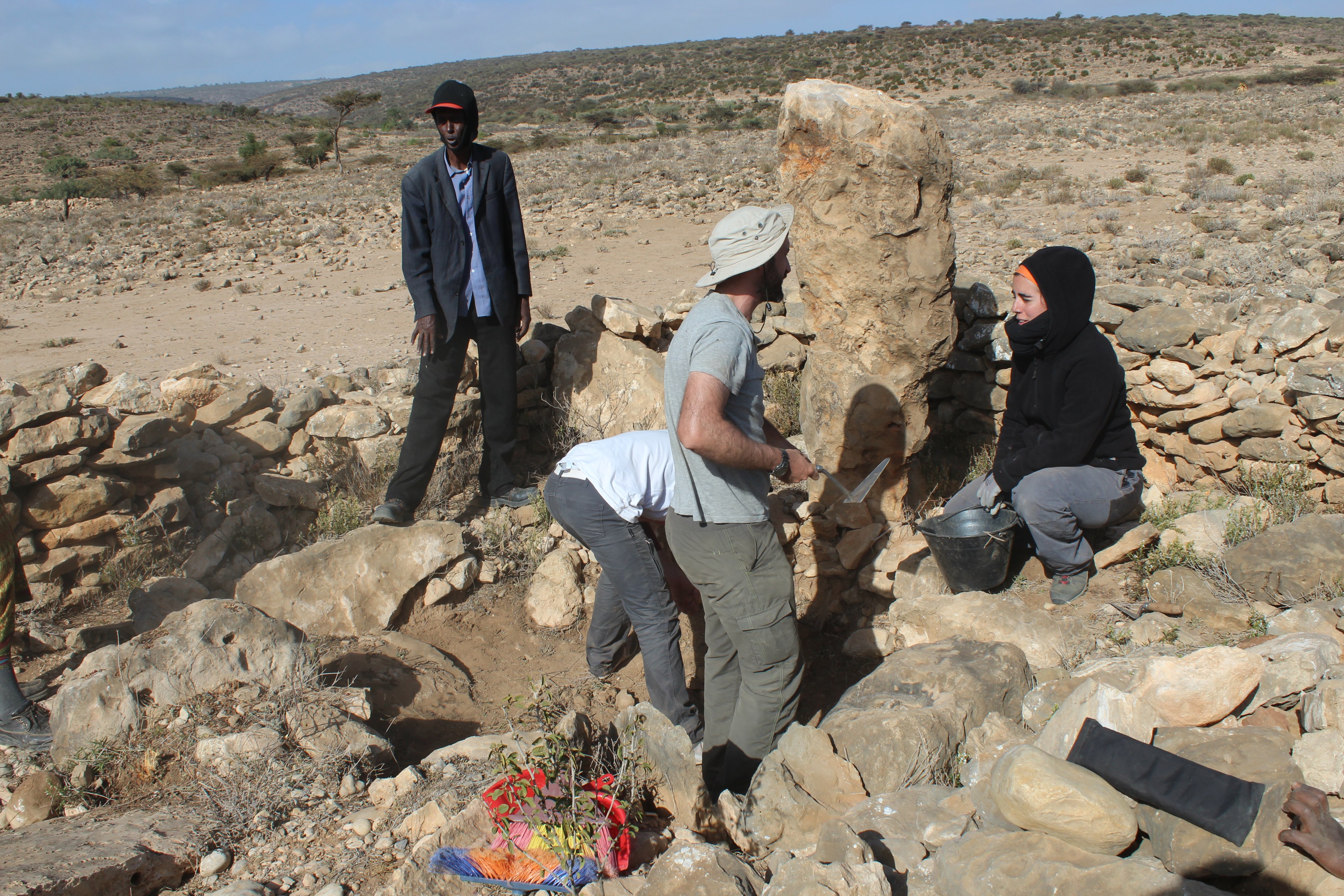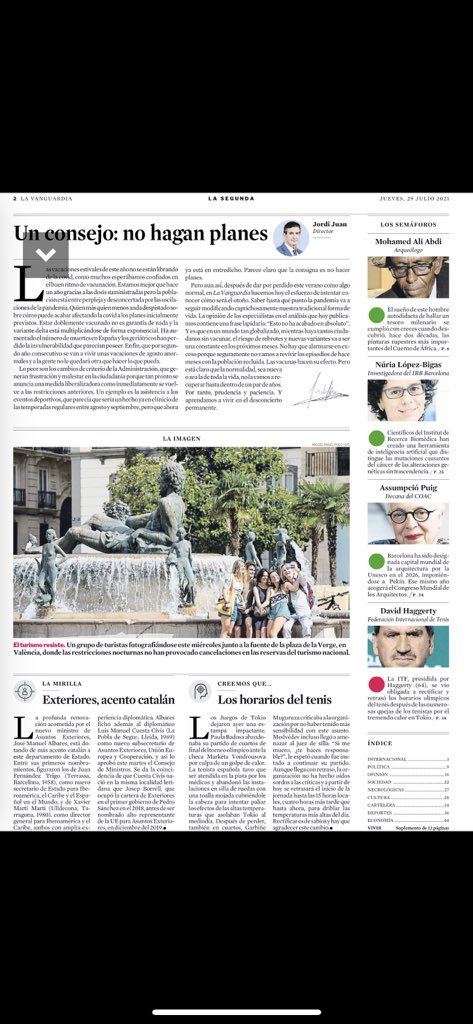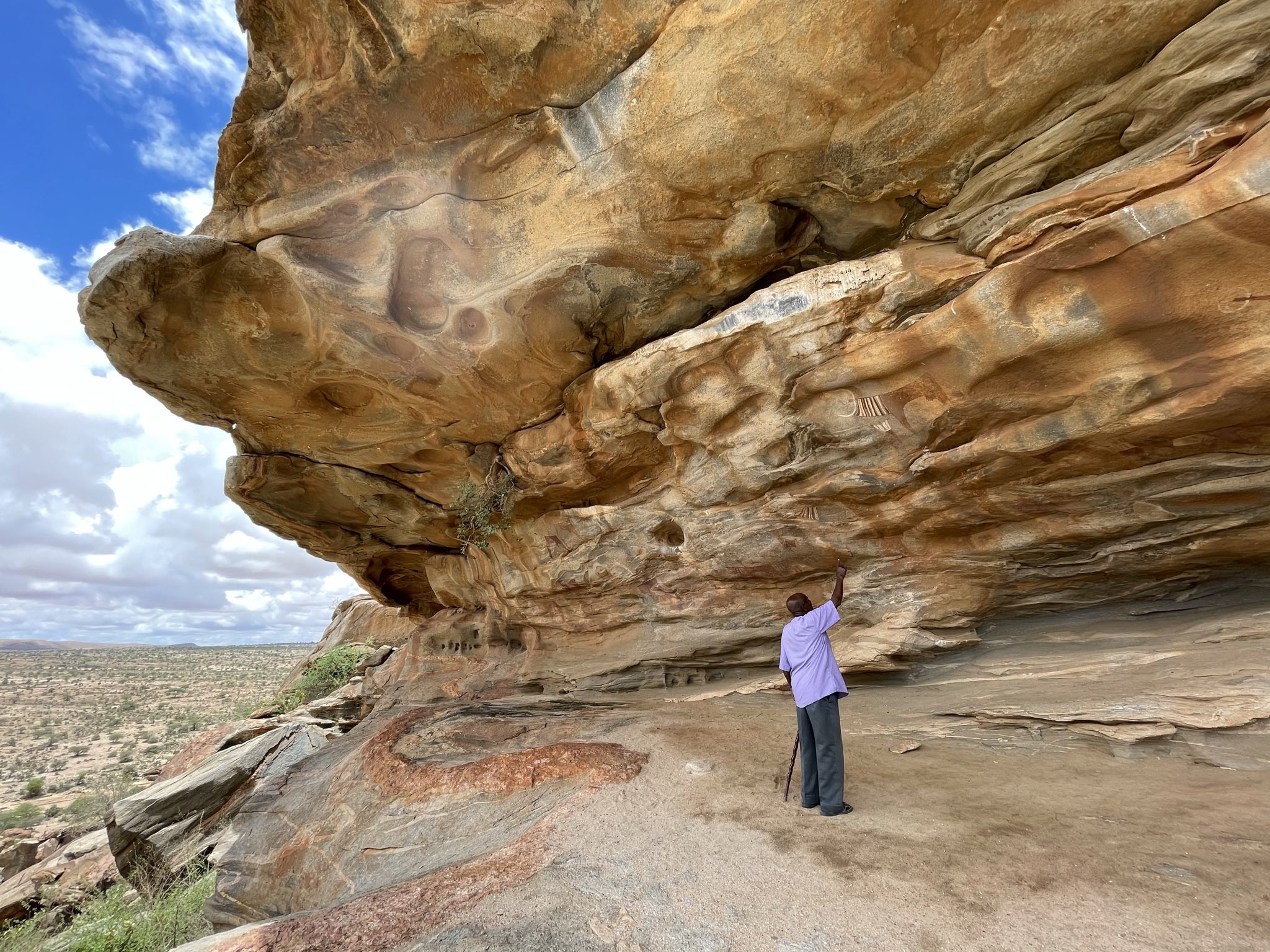He traveled light, only with excess of conviction. 21 years ago, Mohamed Abdi Ali put an old backpack on his back, grabbed a cane and a jug of water, and started walking through the hinterlands of his country, Somaliland. On foot and without money, enduring scorching temperatures and sleeping in the open for one goal: to find a treasure of thousands of years. He found it. One evening, while heating up dinner, he explored a nearby mountain with his binoculars. “I thought I saw an entrance in the stone wall and I saw shadows that looked like paintings. My heart was racing. I knew I had found something extraordinary. I left the food on the fire and ran up the mountain”. On that day in 2000, Mohamed discovered Laas Geel, the most important cave paintings in the Horn of Africa.
Spread over 23 rocky shelters on a 950-meter mound, located in a desert between the port of Berbera and Hargeisa, there were hidden more than 350 figures of humans, animals and enigmatic 5,000-year-old geometric symbols in an exceptional state of conservation. Local beliefs explain the miracle. The shepherds who knew about the paintings believed that they had been created by djin , evil spirits, and ancestral fear caused the paintings to remain isolated to this day.
At 60, Mohamed remembers his happiness at the discovery. “I couldn’t believe it, I felt a huge emotion. I immediately realized its value and that this was to be my legacy. I wiped away my tears and drew some paintings in my notebook. I was amazed, but I knew I had to treat this matter carefully, so I didn’t tell anyone; I kept the secret for two years”. Mohamed began a journey of letters with Italian and French archaeological teams working in neighboring Ethiopia and Djibouti so that they would go to study that treasure. It was not easy: it was not until 2002 that a French team landed in the country somewhat incredulous at the descriptions of a passionate Mohamed and discovered Laas Geel to the international community.
Xavier Gutherz, retired leader of that expedition, recalls the key role of the Somali Indiana Jones. “His importance was enormous, but not only in Laas Geel: all the main archaeological sites in Somaliland, the most important, he has discovered. He has always worked with very few means, traveling the country from top to bottom and despite not having a university education, he is not only an expert in archeology but also in local culture and traditions. He is a great defender of the cultural heritage of his country. I wish their work was more valued”.
The father of nine children, Mohamed retains the air of an explorer from other times and wears an old jacket and his inseparable camouflage hat. He immediately unfolds maps and photos on the table and draws invisible lines between the hundreds of archaeological sites he has discovered. Proudly display letters of recommendation from international expeditions. Among them, that of a Spanish team led by Dr. Alfredo González Ruibal in which compliments are read:“The role of Mr. Mohamed as a field expert has been essential for the achievement of the project’s objectives since he has unique knowledge and first-hand information on the archaeological heritage and resources of Somaliland”.
“Archeology is in my blood, it is my mission and what gives meaning to my life”, he confesses
The son of a military man and a nurse and the oldest of ten siblings, Mohamed fell in love with archeology in his teens, thanks to one of his uncles, who allowed him to accompany him to the excavation of some ancient tombs. Since then, he has dedicated his life to exploring the country. “Archeology is in my blood, it is my mission and what gives meaning to my life.”
Despite little government recognition of his figure in a nation suffering from notable political and economic problems, Mohamed adjusts his hat and shrugs his shoulders. Beyond the silent applause, he says he feels privileged to have“inaugurated an era of discoveries”, but above all because knowing is the first step to protect. “I have discovered things that remained hidden, that nobody had studied and above all that nobody protected. We are still in time not to lose them”.
Source: https://menafn.com/1102546215/Indiana-Jones-in-Somaliland



